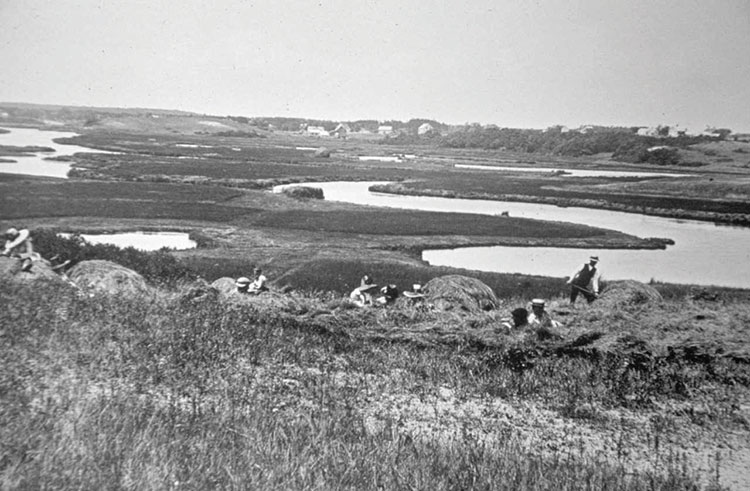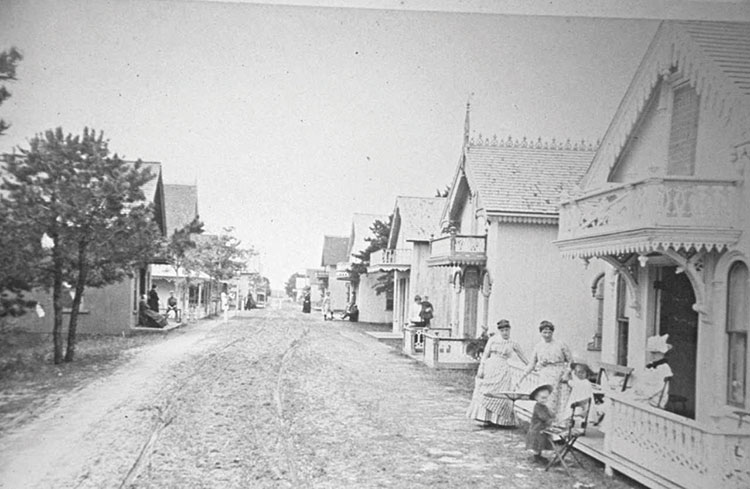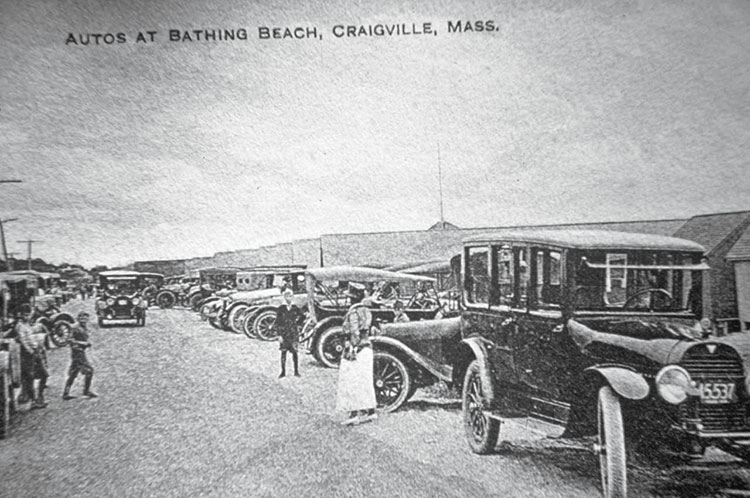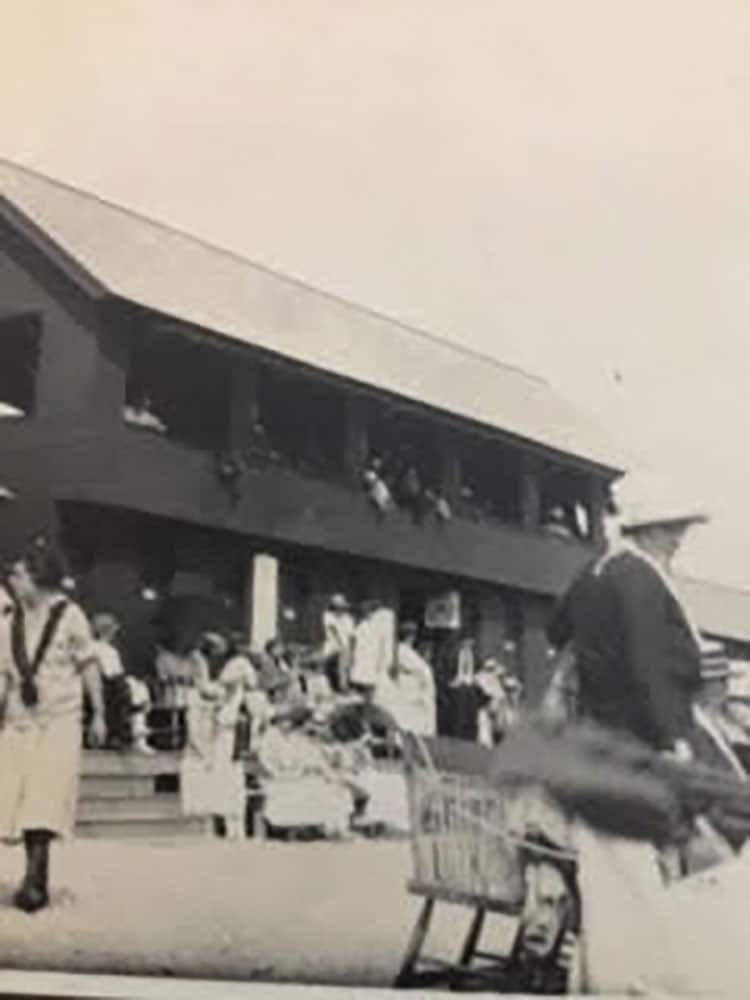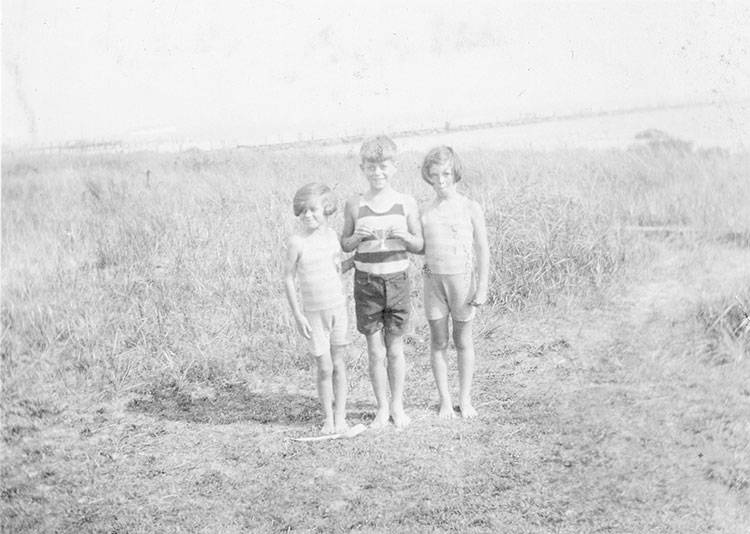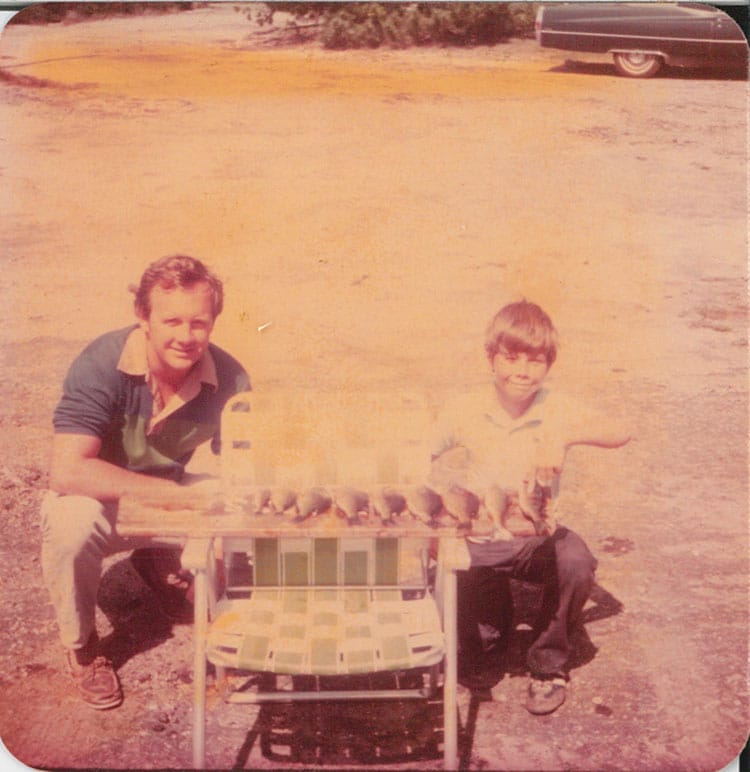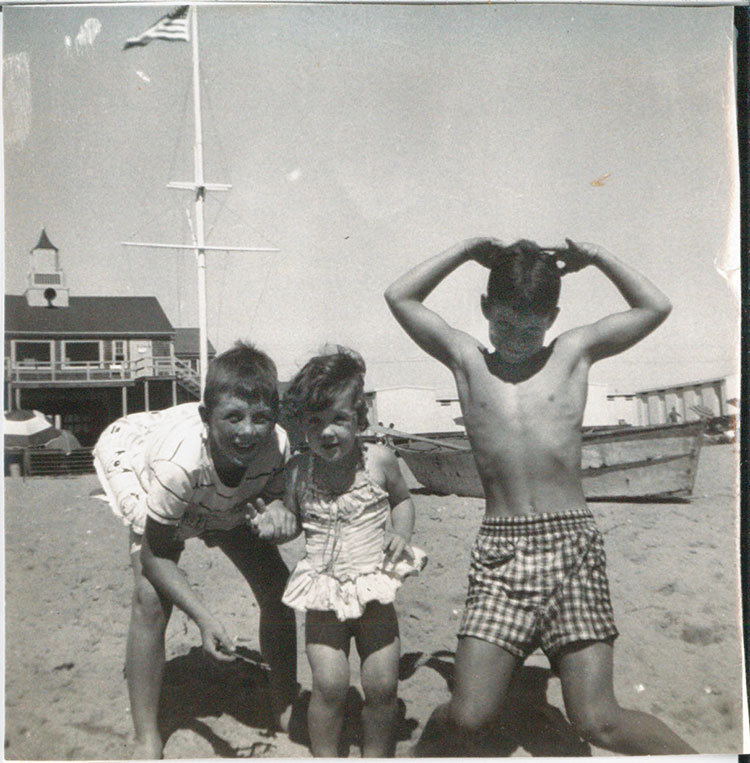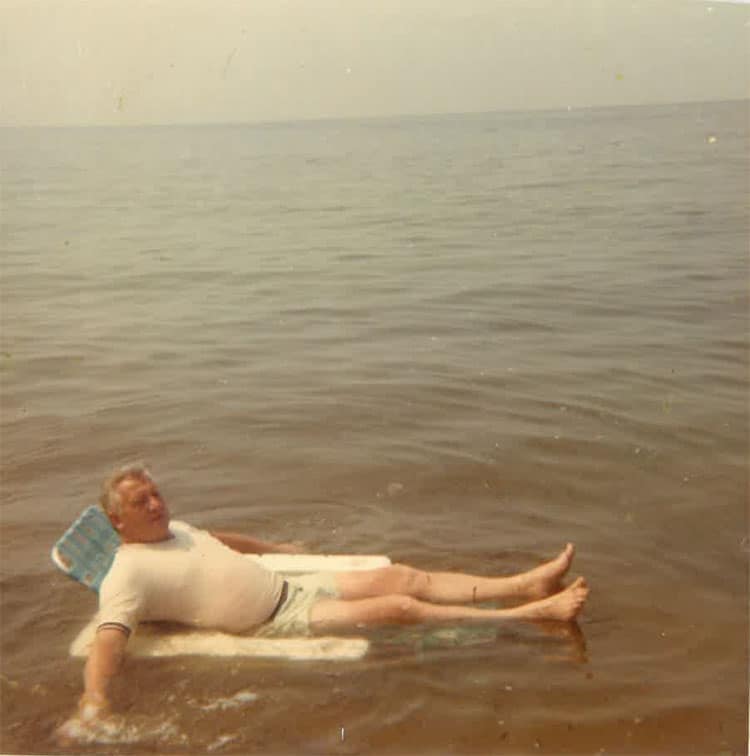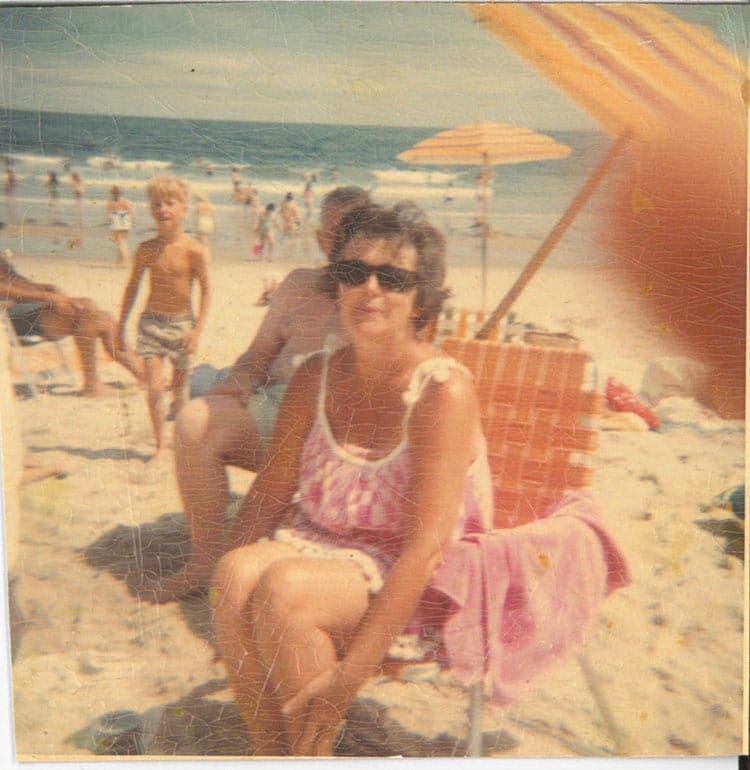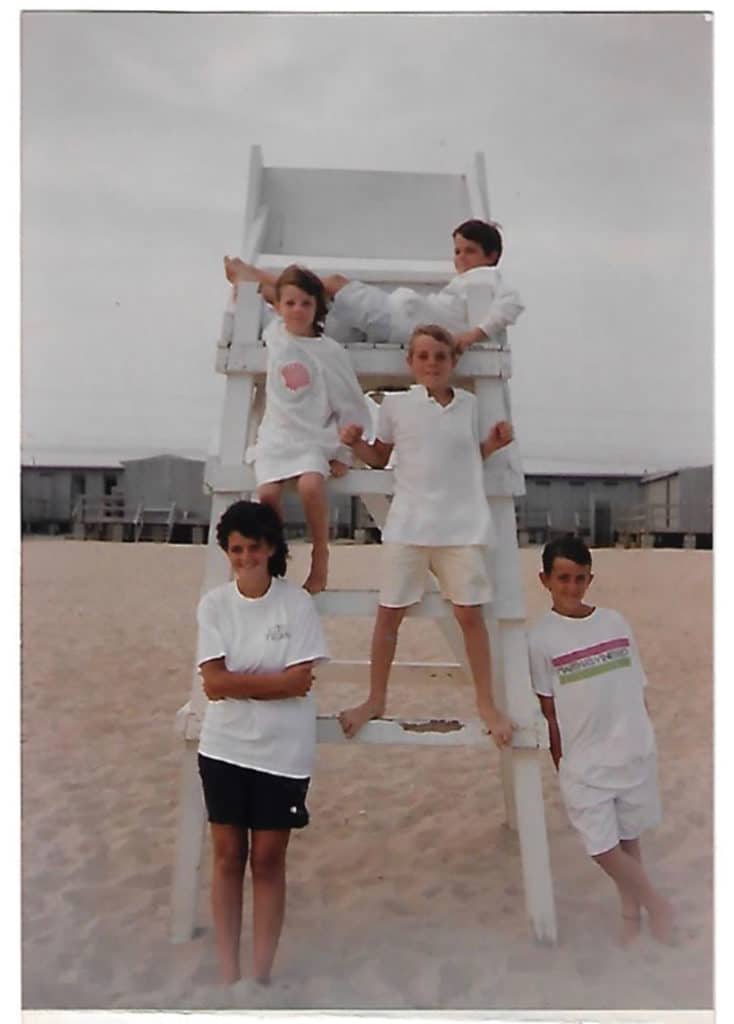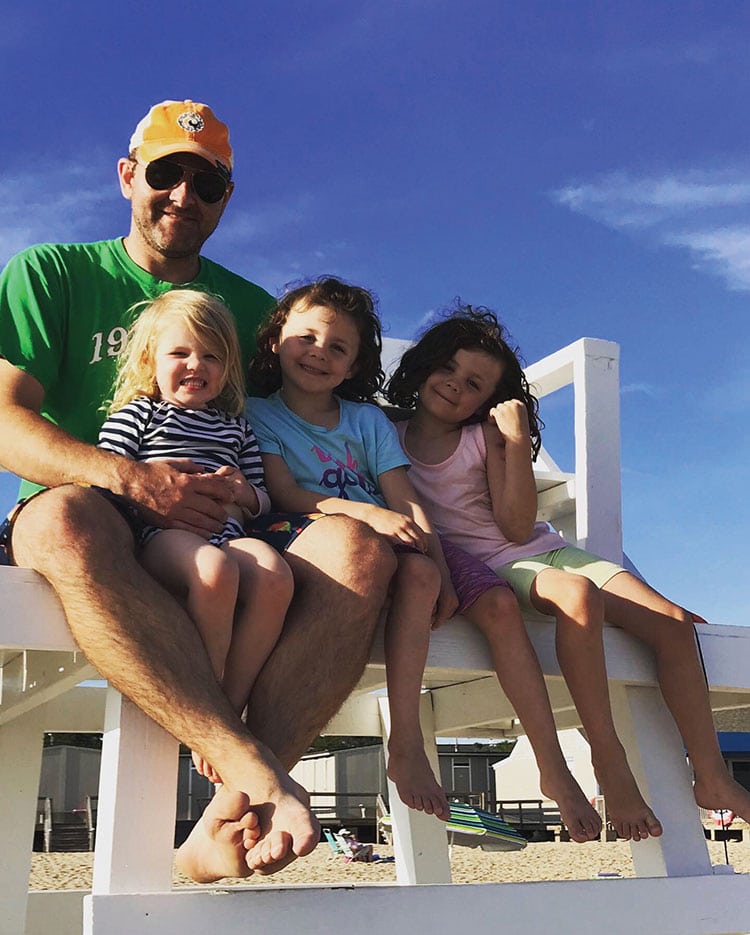
Endless Summers at Craigville Beach
Cape Cod Life / June 2020 / History
Writer: Kevin Shortsleeve
Endless Summers at Craigville Beach

Cape Cod Life / June 2020 / History
Writer: Kevin Shortsleeve
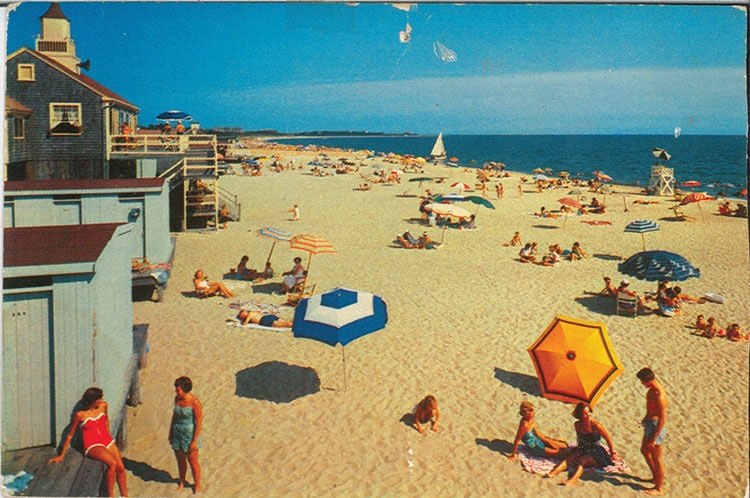
Some moments in a family’s history are especially significant, shaping the family’s destiny and reverberating through generations. For my family, my dad’s arrival at Craigville Beach in the fall of 1938 was just such a moment.
My father, Joe Shortsleeve, was a freshman at Holy Cross College in Worcester when a buddy invited him on a road trip. There had been a hurricane that September on Cape Cod and my father’s friend wanted to see if any damage had been done around his summer haunt on Craigville Beach. As the proud owner of a 1935 Ford Coupe, my dad was the right guy to ask. There were no modern highways, so the drive would take a half day, stop and go all the way, along Route 9 to Boston, then south eventually onto the old Route 3, through Plymouth center, and on up and over the three-year-old Sagamore Bridge.
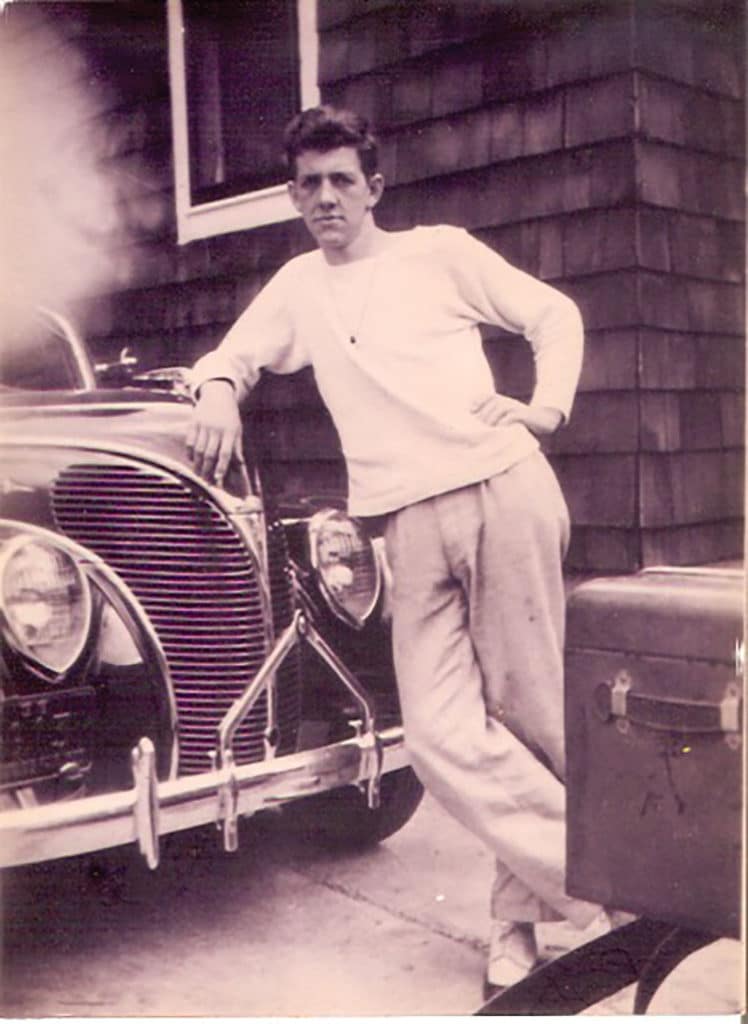
Photography courtesy of the Shortsleeve family (unless otherwise noted)
Being from Western New York, my father might never have seen the ocean before his arrival at Craigville. What is clear is that he never forgot the moment. All his life he talked about that first trip to the Cape, about the quaint cottages in Old Craigville, the view of the Centerville River, the beach at the Craigville Beach Association (CBA) and, above all else, the southwest wind that blew in off Nantucket Sound.
Craigville, like Oak Bluffs on the Vineyard, began as a religious summer retreat, founded in 1871 by preacher, Dr. J. Austen Craig. Parishioners set up tents, attended services, and enjoyed the beauty of the natural surroundings. The original tents quickly gave way to gingerbread cottages, forming the first vacation community on Cape Cod. By the 1880s there was a public green, an inn, and a tabernacle. In 1888, the community bought an 800-foot stretch of the shore, and CBA was born. By 1908 it sported a pavilion and a row of changing huts.
toward the home where my father stayed when he first visited Cape Cod.
Photo courtesy the Craigville Retreat Center. center: “Old” Craigville, when it was new, late 1800s. right: CBA from the road c.1920s
Photos courtesy the Craigville Retreat Center.
My father had stumbled on a gem; by the time he “discovered” Craigville, it’s fame was already spreading. In the 1920s and 1930s the Kennedy family were regulars at CBA, and a young John Kennedy is remembered to have performed well at Race Day in 1926.
My dad graduated from Holy Cross in 1942 and Georgetown Medical in 1945. He met my mother, Peggy Kelley, in Washington, D.C., and they moved around as their young family grew: Oklahoma, Boston, New York, and, by 1952, on to his hometown of Elmira, New York, where he became Chief of Medicine at a local hospital. But as my mother attested–through all these moves, he never stopped talking about Cape Cod and Old Craigville.
In 1954 my mother received a small inheritance and decided to spend the money on a vacation rental. After waiting sixteen years, my father would finally get to return to Craigville. So, in August 1955, my family, which now counted five children, made their first epic overnight twelve-hour drive from Western New York, traveling over the newly expanded four-lane Route 6, and pulling into Hyannis in time for breakfast. The family fell, and fell hard, for this enchanting corner of the world. Besides the beach and the rafts, there were volleyball matches on the Village Green, fishing on Lake Elizabeth, penny candy at the 1856 Country Store, and never enough Four Seas Ice Cream. Late nights found three generations gathered, playing Fan-Tan and betting pennies with our Grammy Kelley.
That first trip was cut short by Hurricane Diane, which was headed toward the Cape. The Cape had been devastated by Hurricane Carol one year before, so my family fled inland to the home of our Aunt Helen in Worcester. Diane followed anyway, flooding Worcester and sparing the Cape. After that, my father was less likely to run from hurricanes.
Of course, everyone wanted to return, and the Cape became an annual destination. In 1957, Patti Page had a number three hit with “Old Cape Cod;” more folks were catching on to the magic. Along the way, Craigville shifted for us from a mere vacation destination to something more like a pilgrimage, complete with rituals and traditions. After the long drive from New York, there was a competition to see who would spot the Sagamore Bridge first. When we got as far as Plymouth, experienced bridge-spotters would watch out the car window, trying to see when the shoulder of the road turned sandy. When it did, the kids would crane their necks, one lucky soul claiming victory as they shouted, “I see the Bridge!’”
Shortsleeve, late 1950s.
In 1960, my father had a house built on 7th Avenue in nearby West Hyannisport. This led to long luxurious summers where the kids measured time by how many days it had been since they’d been required to wear shoes. On the second floor of the pavilion at CBA, there was a ping-pong room and a deck that was high enough so that you could clearly see Martha’s Vineyard on the horizon. On special evenings, the ping-pong tables were shoved aside and teenagers danced to “The Twist” and the hits of Elvis Presley and Ricky Nelson. And that little boy who won at Race Day in 1925 had grown up to become JFK. My older siblings recall President Kennedy’s helicopter coming and going overhead on its way to and from Hyannisport.
By 1966, the family had swelled to eight kids (by order of age: Mike, Brian, Cathy, John, Mary, Joe, Connor and, yours truly, Kevin). My family swarmed over the CBA beach club. Mike was a lifeguard, Brian worked for Charlie Howes at the CBA snack bar, gave sailing lessons and ran a boat rental concession at the beach next door, Cathy also worked at the snack bar and John tended the parking lot. I have distinct memories from the late 60s and early 70s, hiding out from the sun under the pavilion, the Beatles and James Taylor on someone’s transistor radio. I can see my family spread across the beach, my parents in their float chairs bobbing in the gentle waves; Joe tossing the football with his buddy, Rick; Connor, always cleaning up at Race Day, and Mary reading and writing in her journal under an umbrella. A poem Mary wrote describes the melancholy of summer’s end:
“All summer waves roll shoreward, slanting in
But Labor Day, a north wind comes
and waves turn heel and race straight out to sea …
rafts tug on ropes as if to free themselves…
When we were children it seemed a miracle
and we’d stare in admiration
as sand blew at our legs and made them sting
It was never enough
The most beautiful time in our Oceanside village
and we were always leaving…”
In 1967, my father sold our cottage to pay for the college tuition bills that were coming his way. But we kept returning anyway, renting homes along the Centerville River or in Old Craigville. My father loved nothing more than watching the sunset while walking on Long Beach. And, he loved storms. Rather than evacuate from the occasional hurricane, my father’s response now was to say, “Let’s go to the beach.” When the waves at CBA were cresting at ten or twelve feet, he considered conditions ideal, and he would dive in, fists first, get past the breakers, and laugh as he floated about in the storm. I remember one such wind storm; while he swam, I tied a kite to the handlebars of my bike and went sailing across the Craigville Beach parking lot.
left: My sister Cathy’s children at CBA in the 1980s, Kate, Chris, Mike, Brian and Maggie Miller.
right: My nephew, Chris Miller, holding his daughter Cameron, alongside her cousins, Nora and Gracie Scannell.
Sadly, my father passed away in 1980. But his gift to us kept on giving, and our connection to the Cape only deepened. My mother moved to Osterville in 1981, Brian founded the magazine you are now reading in 1979, and I launched my writing career with The Story of Cape Cod, a rhyming verse picture book for children.
Meanwhile, between the 1970s and early 2000s, a fourth generation, my nieces and nephews, were enjoying new traditions like Game Night, where they played Red Rover and dug for watermelons hidden in the sand by the lifeguards. Now it was my nephew, Mike Miller, cleaning up at Race Day, while his sister Kate learned to drive in the CBA parking lot. Their brother Chris (who slept in Locker 178 one night during college) remembers taking sand home at the end of the summer so he’d have a piece of CBA with him all winter. And where my brother Mike had been a lifeguard in the 1960s, now it was my nephew, another Mike Shortsleeve, who kept vigil from the guard chair.
My mother, now referred to as Grandma Peg, kept coming, ignoring doctor’s orders to keep out of the sun. When she could no longer drive, my brother Joe inherited her CBA parking space.
In 2016, my niece Cassie was married at CBA. This was the first of two reunions that brought all of my siblings and their kids together at Craigville. This party was ”epic,” as my niece described it.
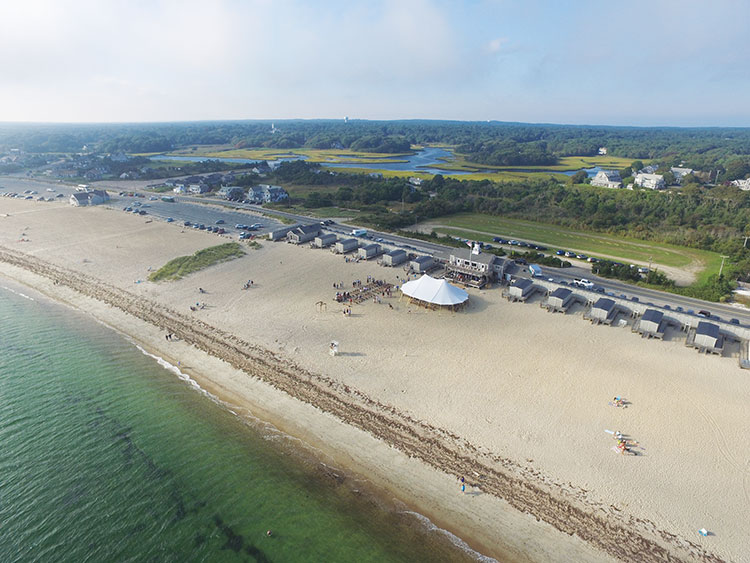
These days my siblings show up at CBA with their grandchildren, introducing a fifth generation to our old haunt.
Another reunion happened this past February. If my father had been alive, he would have turned 100 on February 9. My nephew, Chris Miller, suggested we all get together that weekend and celebrate his life. It was a beautiful idea.
The whole family pulled together. Everyone was given a job, and the party preparations got under way. The first task was to find a location that my father would have liked. Naturally, Craigville came to mind. The next problem was that the location had to accommodate the entire extended family, which now included twenty-one grandchildren, their spouses, and eighteen great grandchildren—nearly seventy people all together. If you look back at that photo of Cassie’s wedding, you’ll notice that up on the bluff behind CBA sit two large structures. They are the Lodge and the Manor House for the Craigville Retreat Center. We made contact, reserved both buildings, and started assigning names to the rooms, ultimately filling seventeen of them.
My father apparently also got involved in the planning—from the celestial beyond; it had to have been him who arranged for the wind storm that knocked the lights out all over the Cape as we arrived on Friday—and then he sent us an enormous Snow Moon to watch over the gathering on Saturday night.
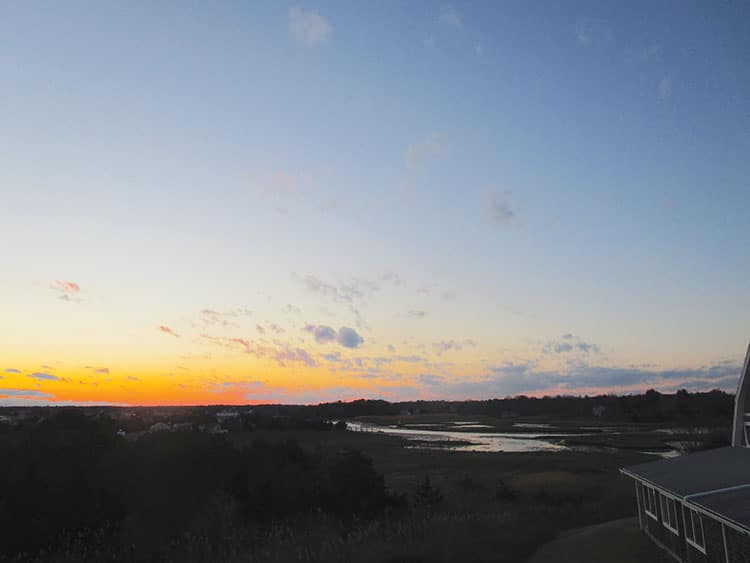
Photo by Kevin Shortsleeve.
We assembled for sunset, looking across the Centerville River to the house on the hill where he stayed on that first visit in 1938.
Back inside the cozy old lodge, there were photo displays, old family super 8 films that had been uploaded to YouTube, music from the 1940s that my father loved, and time gathered ‘round the fire, where we took turns telling stories about “The Doc,” as we affectionately refer to him. There was plenty of laughter, and even a few tears.
And just before midnight, a hardy group of revelers left the party for the beach at CBA, where they went swimming. Yes. Swimming. In February. It was too dark to photograph, but I did let the camera on my cell phone roll, so I could record the screams.
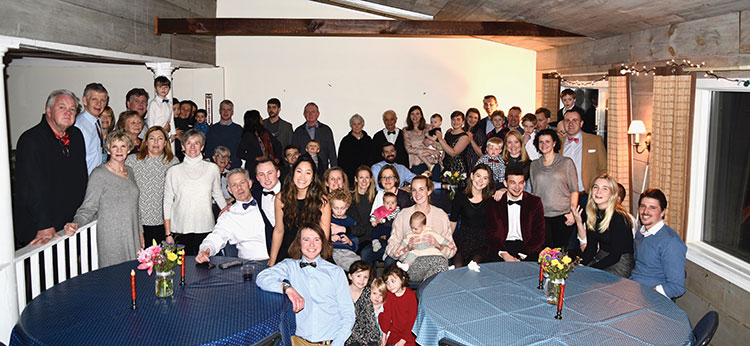
The whole gang, the descendants of Joe and Peg Shortsleeve, on the occasion of the late Joe’s 100th birthday, February 8, 2020 at the Craigville Retreat Center. Photo by Josh Shortsleeve & Rick McLaughlin.
What better way to honor my father’s memory—the man who delighted in swimming in hurricanes? There were his children and grandchildren gathered in his honor, diving into the frozen waters of Nantucket Sound.
My family has always known how to have a good time. We got that from our parents. My memory is that family meals, which usually began as formal sit-down dinners, often dissolved into comedy routines. Mom and Dad knew what mattered most in these good times; they knew the secret formula. The people—having everyone together—was most important. And, the place mattered too. Craigville was, and remains, our place.
Kevin Shortsleeve is Associate Professor of English at Christopher Newport University. He is the author of various essays and books, including the children’s book, The Story of Cape Cod. He is also Brian’s brother.
kevin.shortsleeve@cnu.edu
Information on Craigville Retreat Center can be found at uccr.org

